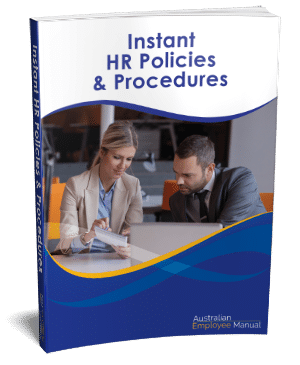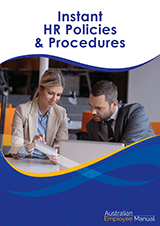Does any of that sound familiar?
The past few weeks, like the rest of Australia, I have been watching with horror the developing bushfires. Like most of Australia, I have had friends and relatives evacuated from danger or stay to fight fires near their homes.
At the time of writing on 6th January 2020, there has been 6.3 million hectares burnt out and counting. How big is a hectare? The MCG is 1.7 hectares – which means 3.7 million MCGs have burnt. Over 1300 people have lost their homes, and 25 people have lost their lives. The scale of the disaster is apocalyptic.
Talking with my colleagues and friends during the bushfires, the shock and horror were apparent as were some pretty raw emotional states.
To give context to this post, in my early career, I gained a psychology degree and worked in human resources with people in organisations of up to 7000 staff. I still coach business owners on leadership and other business success strategies.
What I was hearing from my friends and colleagues were classic symptoms of survivor’s guilt.
I thought it may be useful to cover off some of the key things you need to know about survivor guilt, and how to keep your mental health in balance during a disaster and the recovery.
If you find your emotions are overwhelming and impacting on your ability to function, or if you feel suicidal, seek competent assistance from a trained mental health professional, Lifeline or Beyond Blue.
I won’t be going into the mental health issues facing people in the front line, or people who have lost their homes, but will focus on people who are safe or who have come through physically relatively unscathed.
Why Bushfires Create Emotional Trauma
Bushfires are some of the most traumatic natural disasters. Events such as earthquakes or tsunamis happen in an instant, compared to bushfires that can last for months.
It is also harder to mentally prepare for a bushfire. If you are in an earthquake zone, you know the risk is possible. With bushfires, the feeling is often that “It will never happen here.” The very unpredictability of bushfires increases the trauma.
What is Survivor Guilt?
People who come through a significant traumatic event have a range of different emotional responses.
Some people carry a feeling of guilt that they survived and were safe when others were not. This feeling may be conscious or unconscious, and these feelings can impact their behaviour, emotions and relationships.
The idea that somehow people could have prevented what had happened can be more psychologically desirable than the frightening notion that the events were completely random and senseless.
That’s why people victim blame after a disaster (the victims did something wrong or were somehow sinful and deserved to be punished), politically blame (if only politicians had done …) or self-blame through survivor guilt.
Survivor guilt is a typical response. Some of the impacts you may see or experience with survivor guilt:
- Immobilisation – feeling you are not able to move forward with your life.
- Feeling bad for feeling bad and not being able to control your emotions.
- Feeling that no matter what is done (or what you do in life), that it will not be good enough. (We are already starting to see this fatalism popping up in relation to caring for the environment and helping it heal.)
- Depression and anxiety.
- Panic attacks.
- Trouble sleeping and nightmares.
- Intense and unpredictable feelings.
- Anger and irritability.
- Wanting revenge on the people that caused the issue.
- Feeling blank, “spacey” or scattered.
- Confusion and disorientation.
- Difficulty in concentrating, retaining information and making decisions.
- Loss of appetite or bingeing on the wrong foods.
- Withdrawing from friends or social relationships.
- Feeling helpless and as if you are not enough.
- Lack of motivation or apathy.
- Feeling betrayed by God or your spiritual beliefs.
- Worrying a lot of the time.
- Feeling lingering sadness.
- Upset stomach.
- Elevated blood pressure.
- Active expectation of future disasters.
- Feeling guilty for having fun.
- Over protectiveness of spouse, children and loved ones.
These are all normal responses to stressful events and in many cases, will diminish with time and self-care.
However, when prolonged, these feelings can increase to full-blown Post Traumatic Stress Disorder (PTSD) that needs specialist assistance.
Things That Increase The Likelihood Of Survivor Guilt
Not everyone who witnesses a traumatic event like a bushfire will experience survivor guilt. There are some people more prone to developing it to a greater or lesser degree.
- Past trauma (especially childhood trauma).
- History of depression.
- Low self-esteem.
- Lack of support networks.
- Low resilience or coping skills.
- Having a high sense of responsibility for people around you (e.g. mothers, people in positions of authority, people who care for others as a job such as nurses, police, etc.).
- Being a child or a teen or an older adult.
How Do You Get Through Survivor Guilt?
There’s no right or wrong way to feel or to cope after a natural disaster. Here are a few strategies that you may want to try.
Know that these feelings are normal. You aren’t broken! It’s OK to survive or not be affected.
Remind yourself you can handle sadness. If you have made it this far in life, you will have experienced (and survived) sadness and loss before. You can do it now.
Know that old issues may be triggered. If you have old feelings of worthlessness, unworthiness, not counting, being invisible or being a nuisance, then these may be triggered by natural disaster events.
Allow time to grieve. Don’t try to force your emotional healing to a timetable. Some people bounce back quickly – others take years.
Know that people can feel two things at once. You can be happy that you are safe and unaffected while still feeling sad for other people.
Know that it’s OK to laugh. Laughter helps release stress – even if it is dark humour.
Find ways to relax. Consciously take measures to relax and de-stress.
Forgive yourself for anything you did/ didn’t do or say.
Reduce your media intake. It is important to be informed, but if it triggers constant sorrow or upset, know that your sadness is not helping others going through stuff. This is super important if you have kids – reduce the amount of times they see the trauma on the media.
Do something positive for others. Giving money is important, but giving of your time directly to help someone or something can be more healing. Share your time, skills, knowledge, information and resources can help you feel like you are “balancing out the karma”.
Donate blood. Blood is always needed in emergencies and can save a life.
Eat healthily, sleep and exercise. Your body needs resources to help your emotions to heal.
Get back into a routine. Restore normalcy and security by getting back into a routine of work, eating exercising and sleeping.
Talk with others. Talk with other people who may be going through the same thing, or talk with your friends or loved ones. A problem shared is a problem halved is more than just a saying.
Stay in touch with friends or colleagues who have been directly affected. Stay in touch not just in the immediate period, but over the coming months and years as they deal with their own emotional response. Contact particularly during anniversaries of the event, or if there are trigger events (e.g. more bushfires) near them.
Be aware that scammers prey on disaster. Phishing and malware increase post-disaster as people are naturally generous and want to help. Their guards are down which means links are clicked that would not usually be clicked, and donations made without the usual security checks made. Don’t make donations to random people who call on the phone seeking a donation or selling raffle tickets.
Get your own house in order. If you were not directly affected, but you still feel vulnerable to similar natural disasters, use that as a prompt to get your home in order and increase your disaster preparedness.
Avoid major life decisions. While reassessing your life is healthy, deciding to change your relationships, or change your business has its own stressors. Try and minimise the significant additional stressors you are going through at one time.
Focus on the meaning and the lessons. Find the lessons you can take from the event and not ruminate on the “why did it happen to me” or “why was I spared and not my neighbour” question.
Reassess your life and find your life meaning. What are you here to do and how can you do that? Make the best of your life as a tribute to your survival and to those that died.
Treasure being alive. Traumatic events can make you realise the beauty in little things, and that each day is a gift.
Seek help. If you are having problems functioning in your day to day life, if you have suicidal thoughts or if you are worried about your mental state, see a mental health professional.
Last thoughts
Being aware that what you are feeling is normal, and prioritising self-care is an essential coping strategy. Your responsibility is to heal and stay healthy so you can do what you are on this planet to do.
What has happened through the bushfires is intensely traumatic to all the people and communities affected by the fires. Our hearts go out to the people, communities and animals for the unimaginable horror they went through. May they get the resources, love and support they will need over the coming years to get through.
Some Useful Resources
Want to know more or do more reading? Here are some useful resources.
Leading in Disaster Recover, Striving Through and Staffed or Stuffed all from the Resilient Organisations website. These cover lessons from Christchurch earthquakes and are invaluable resources. The Leading in Disaster Recovery publication was prepared in conjunction with the NZ Red Cross and is the one that I recommend every small business owner download and read.
Emerging Minds has a stack of great resources for health practitioners, teachers, parents and first responders on children’s mental health after natural disasters. Their video on Strathewen community: A bushfire recovery story 10 years in the making is particularly useful as it covers two teachers, a parent and child reflecting on their experience of healing from a major bushfire.
Australian bushfires 2020: Psychological preparation and recovery resources by the Australian Psychological Society.
Understanding Survivor’s Guilt by Kendra Cherry
Natural Disaster Business Recovery Checklist by the QLD Government


